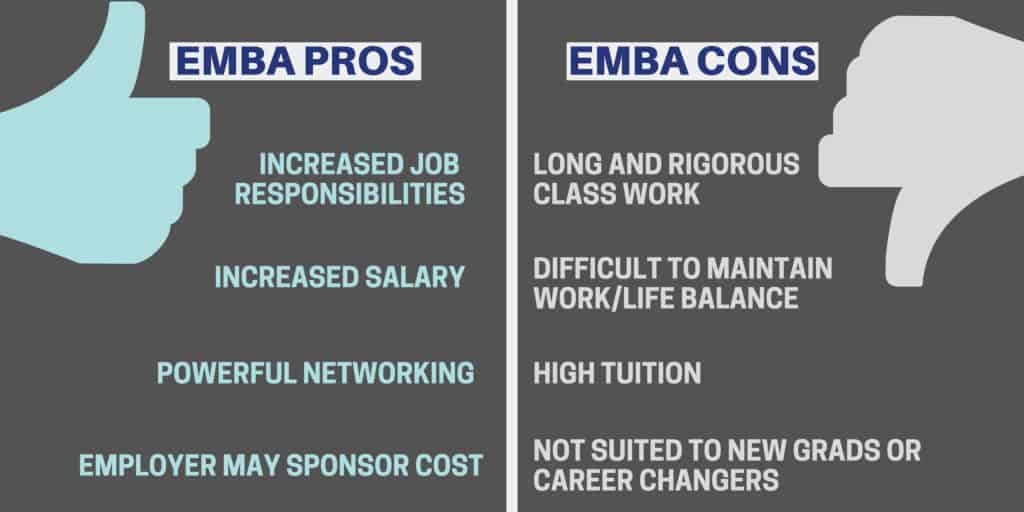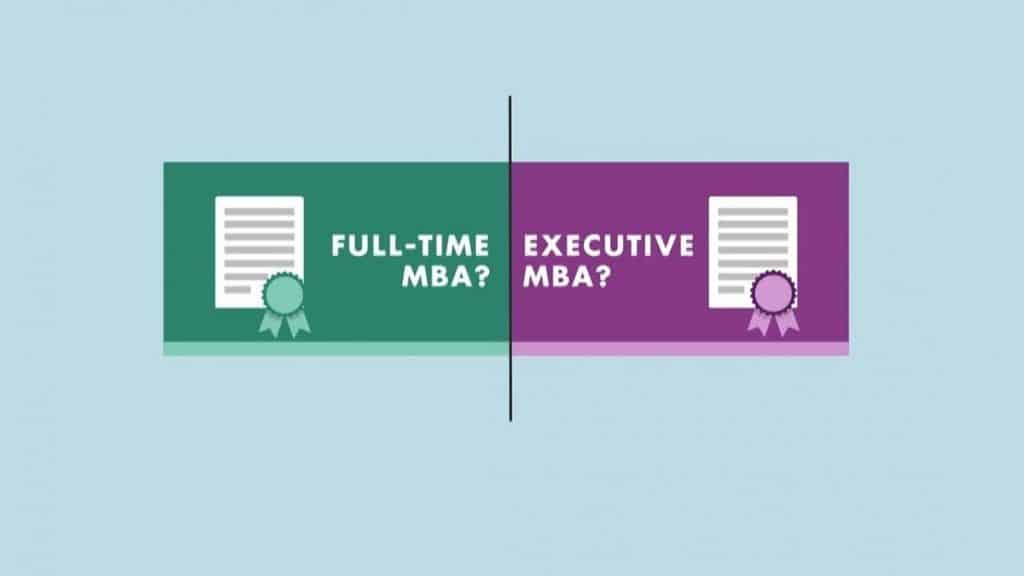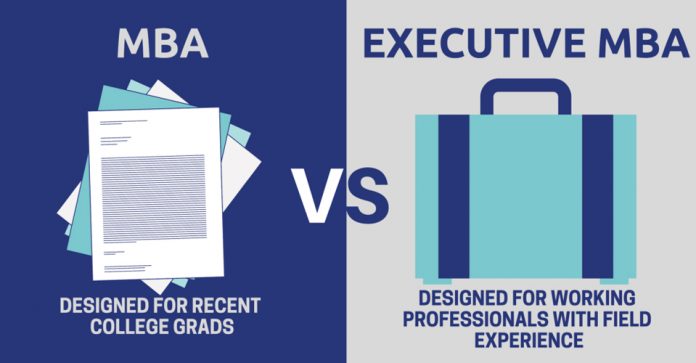If you’re considering your business school options, you may have to make a choice between a regular MBA and an Executive program. What are the differences?
Business schools that run MBA programs may have various courses on offer. Choosing the right option for your current life-stage and future career development is important and this may mean making a decision on whether to study for an MBA or an EMBA. How do these programs differ?

When is the Right Time to Study an MBA?
Some people will take on an MBA as soon as they have finished their undergraduate study or with just a few years of experience in the workforce. They may opt to study full-time for one or two years, or may take a part-time, distance or online course that allows them to simultaneously hold down a job. The aim here is often to get a leg up the corporate ladder and to improve career prospects sooner rather than later.

Program qualification, especially for highly-ranked business schools, can demand a certain level of academic achievement and high entrance test scores. Teaching here may be supplemented by internships and work placements that give on-the-job experience, but is otherwise relatively academic and classroom based in nature.
When Might an EMBA be a Better Option?
The Executive MBA is traditionally taken by older people who have already built careers and who have some substantial work experience behind them.

These programs are viewed as useful by many managers who wish to develop a corporate edge, change sector specialism or add up to date academic or sector skills. This may involve a certain element of fast-tracking as students already have real-life experience that can be applied in class.

Entrance to these programs may not be based on academic ability and is more likely to take into account the career experience of the candidate rather than test scores and previous degrees.

Most courses will be taken on a part-time basis, to enable students to continue to work, and may include evening and weekend classes.
Is an EMBA Better than an MBA?
There is sometimes a perception difference between these two degrees. Some people consider a regular MBA to be better than the Executive equivalent as it can demand higher academic abilities and can boost a career early on. Others feel that the extra work experience needed for an EMBA produces a more rounded and capable manager who could be given a useful mid-career advantage.

On paper, however, both programs basically confer a Master of Business Administration degree and come with the same advantages and disadvantages. The only difference in many business schools is in the title of the qualification awarded and in its entrance criteria.
The courses themselves are often based on the same modules and subjects, although the teaching methods used may vary given the experience differences between immediate post-graduates and experienced executives.

- What Is Aromatherapy Vs. What Are Essential Oils?
- What is La Tomatina in Bunol, Spain Like? What to Expect at the Famous Tomato Throwing Festival
How to Choose Between an MBA and EMBA
Your age and experience is likely to play a part in the type of degree you choose. A recent graduate with no/little work experience is unlikely to be accepted on to an EMBA course and may find it harder to be accepted on to an accredited course which may set work experience limits.

If you are returning to study, after a few years in the workplace, then a school may have no problems with you taking a regular degree (as long as you meet its admissions criteria) but may guide you towards studying with your peers in an Executive program instead.


















